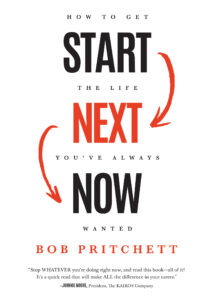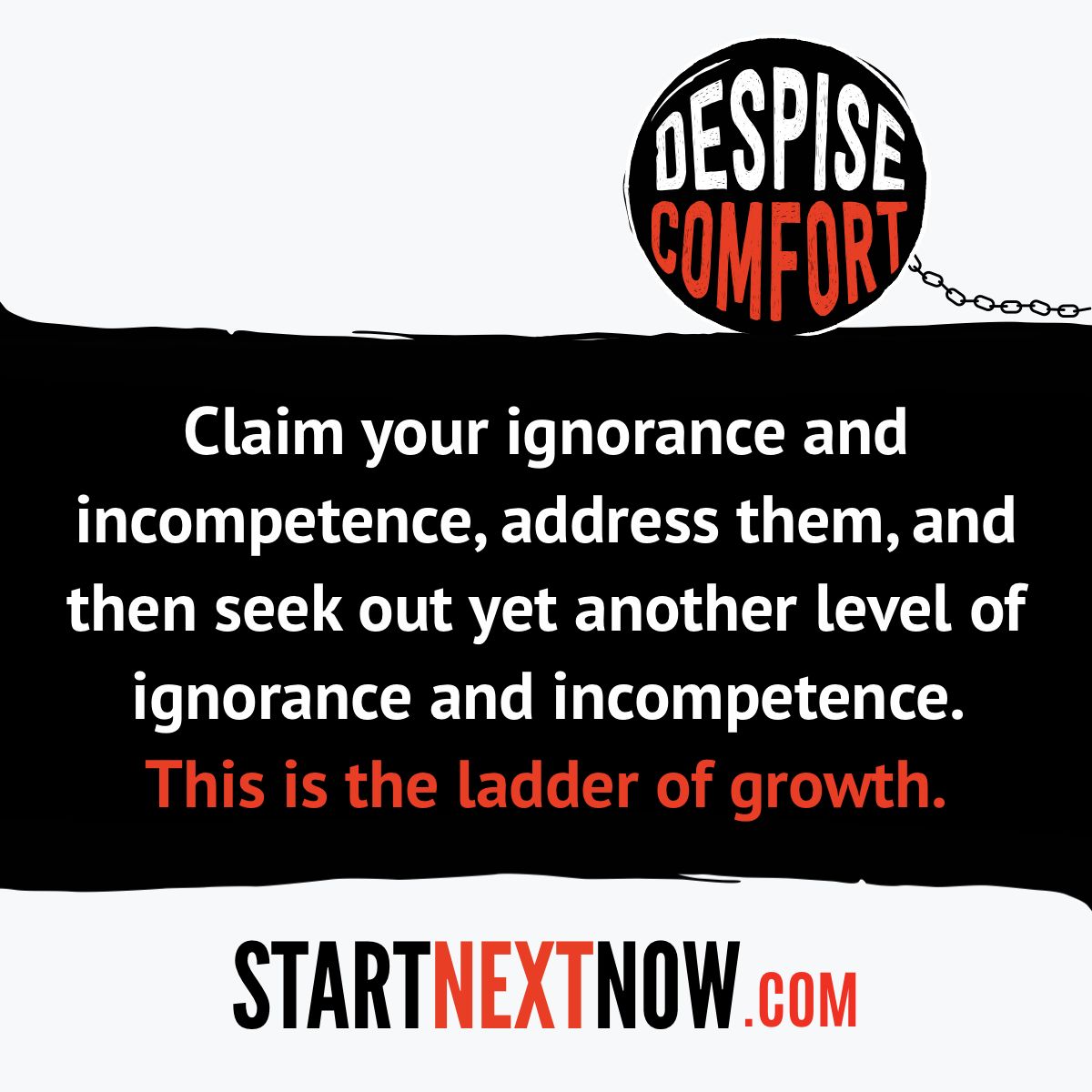Get the Life You’ve Always Wanted
Bob Pritchett is the CEO and founder of Faithlife Corporation, an organization serving 3 million users around the world. His latest book, Start Next Now: How to Get the Life You’ve Always Wanted is a plan to advance your career. It is a short book full of career advice designed for those looking to advance their careers. I met Bob several years ago. He is a purpose-driven leader who wants to make a difference. Recently, I asked Bob about his work and advice.
Give Yourself Permission to Explore
You start with a simple question, “What do you want?” but that question is profound and not always easy to answer. What do you recommend to people who don’t know what they want?
Give yourself permission to explore. Read broadly, and set aside time to try new things. Explore things that interest you, things that you enjoy. Many people choose their goals from a distance and spend a lot of time in planning and preparation and education before learning if they really want to do the thing they’ve been preparing for.
Volunteer. Interview people doing things you might want to do. Try job shadowing. Find some way to do or experience the thing you’re exploring and find out if it’s for you.
Don’t be afraid of pursuing the wrong thing; a small investment in a dozen different directions is much less expensive than going all in on the wrong goal.
Raise Your Visibility
What practical steps do you suggest for raising your visibility?
I have several suggestions in the book. One of the easiest is to dress up.
When you dress as casually as your co-workers, you signal that you’re done moving up. It’s a way to fit in and be invisible in the crowd. People who want to get ahead signal that fact to the people who can help them get ahead by dressing the part.
Dress up tomorrow. Just raise the bar one level beyond your norm and be ready for the comments from your peers. If you don’t hear any, keep taking things up a level until you do.
How does one increase visibility without losing humility or looking self-promotional?
 We cultivate a heart-attitude of humility through a pattern of service to others. If you do work that serves your team, your organization, and your constituency (customers, students, congregants, etc.), people will notice. There’s nothing better for your reputation than being ‘caught in the act’ of generous service.
We cultivate a heart-attitude of humility through a pattern of service to others. If you do work that serves your team, your organization, and your constituency (customers, students, congregants, etc.), people will notice. There’s nothing better for your reputation than being ‘caught in the act’ of generous service.
In your career or organization, though, you still need to be intentional about increasing your visibility, even if it’s in small ways like dressing for your next job or constantly re-introducing yourself or working on projects that people are going to see. In most businesses the products and services need to be marketed, and showing that you can market yourself — while it may earn disapproval from jealous people behind you — can be an important part of signaling that you can handle more responsibility for the business.
Confront Fear
What recommendations do you have for “confronting fear”?
Many people are afraid of being exposed as incompetent. But incompetence isn’t anything to be ashamed of. It’s a temporary state of affairs.
If you’re proficient in something today, you were incompetent in it at some point, and you acquired the skills and knowledge you needed to become proficient. We need to stop being ashamed of or afraid of what we don’t know.
Understand that fear is a normal feeling, and get used to appreciating it and then pushing ahead.
Limit Videos and TV
You are not a fan of watching videos or TV. How does television watching limit success?
You can’t think when you are watching television. Television is a passive, lean-back experience. You don’t get ahead by leaning-back; you get ahead by leaning forward.
Television is a time trap. Whether it’s broadcast television, where every commercial break teases the show that follows, or YouTube videos, where the end of one clip leads right to the next recommendation, the medium is focused on filling all your available time.
Is there useful, educational, and career-advancing material available on television? Of course. But it is a rare person who can focus on those few gems and resist being pushed deep into the couch cushions for hours on end. And every useful thing on television is available in a lean-forward format too. Read the book that inspired the movie.

Despise Comfort
At the end of the book, you talk about being intentional. What you discuss is owning your own plan, your life, your goals. It’s all about personal responsibility. How do you encourage people to take this ownership and make it happen?
It’s easy to get trapped in a pattern of disappointment and self-reproach. Being intentional about your plan and your goals can free you from this. You don’t have to be World Champion in your area of expertise. You don’t have to conquer the industry or be named CEO at your company. You can pursue those things if you want, but you can also be intentional about pursuing a good job and a rewarding life with an income you’re happy with; that intentionality can free you of the nagging fear that you’re not doing enough or not trying hard enough. If you are doing what you intend to do, you’re on track.
Decide what you are really pursuing and then go for it. And learn to be content and enjoy the success you intended to achieve without needing to compare it to the different choices others make.

Read for Success
You’ve been a successful entrepreneur. What advice do you have for aspiring entrepreneurs?
I once had an argument with someone who didn’t want to read business books because ‘They all contradict each other, proving they don’t know what they’re talking about.’ I think that’s the wrong perspective; there isn’t one right answer you’re going to find in the one right book.
What you need is a mental toolbox. You need to have seen thousands of scenarios and heard what options there were, what choices others made, and what happened.
Then, when a slightly familiar yet somehow slightly different scenario comes up, you can reach into that toolbox and extract the right tools to address your situation.
Reading broadly puts tools in your toolbox, whether it’s the technical and situational skills you learn from non-fiction or the empathy and emotional intelligence that are fed by fiction.
Start Next Now: How to Get the Life You’ve Always Wanted


